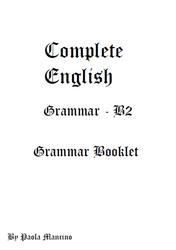Фрагмент из книги.
The modal verbs are: can, could, may, might, must, ought to, will, would, shall, should. They take no -s In the third person singular. She can sing well. They come before the subject in questions and are followed by “not” in negations. "May I use your phone?” “I'm afraid you can’t”. The modal verbs, except for “ought”, are followed by an infinitive without to. You ought to be there on time. Certain verbs and expressions have virtually the same meaning as some modals. These are: need (= must), had better (= should), have to/have got to (= must), be able to (= can), used to (= would) etc. You’d better go. Modal verbs are used to express: ability, advice, criticism, logical assumptions, necessity, offers, obligation/duty, permission, possibility, prohibition, requests or suggestions.

